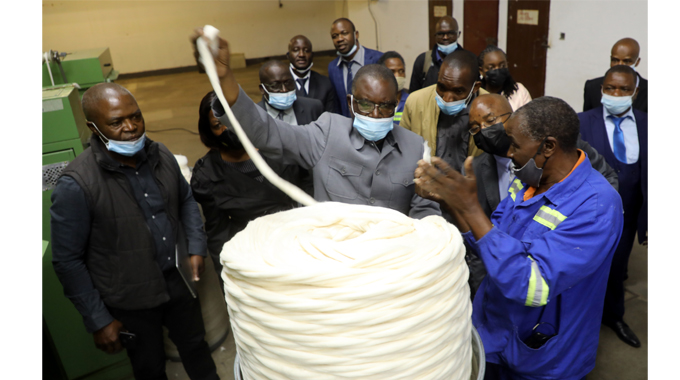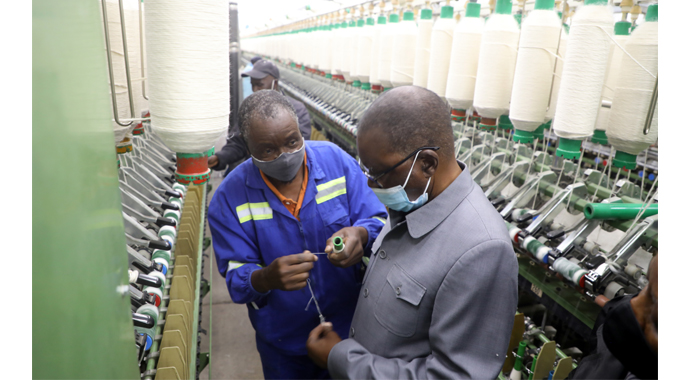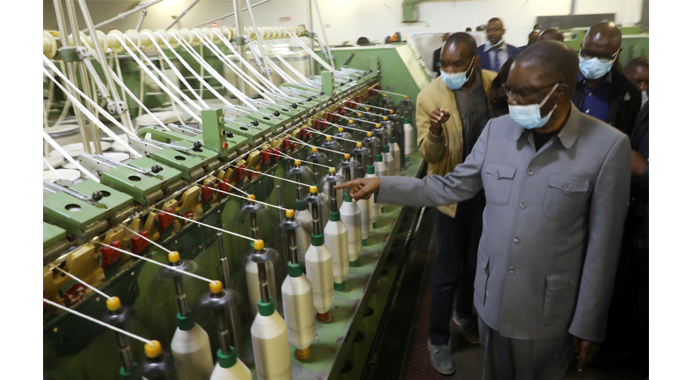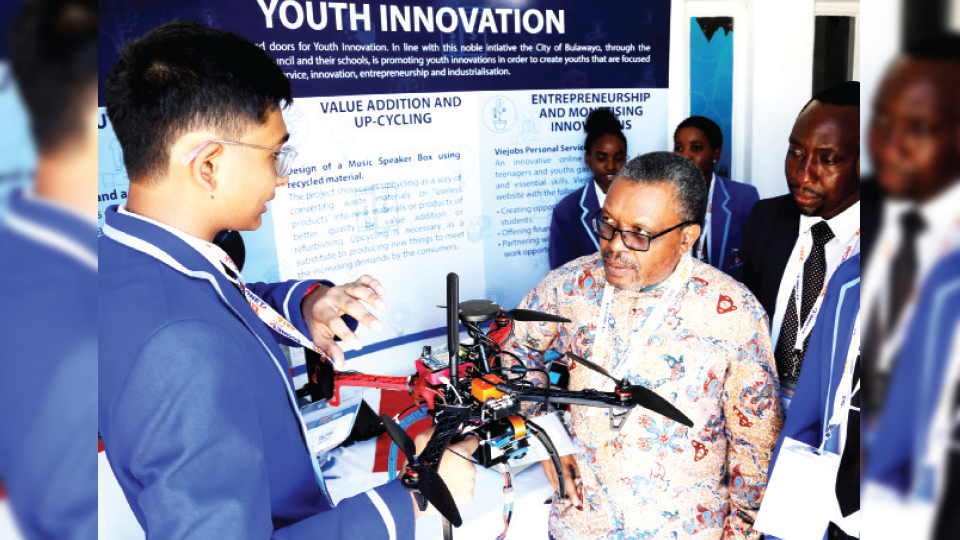Second hand clothing crippling industry viability

Sikhulekelani Moyo, Business Reporter
THE influx of cheap second hand clothing into the country is adversely affecting the viability of the cotton to clothing and textile industry value chain, a Minister has said.
The sector is one of the key economic ones with a great potential to create employment opportunities and contributing to exports and promotion of economic growth.
Speaking during a tour of Cotton Pro Company (CPC) in Bulawayo yesterday, the Minister of State for Presidential Affairs responsible for monitoring implementation of Government programmes, Dr Joram Gumbo, said the clothing industry, wholesalers and retailers, were feeling the pinch of reduced business due to second hand clothing impact.

The Minister of State for Presidential Affairs and Monitoring Implementation of Government Programmes, Dr Joram Gumbo tours Cotton Pro company in Bulawayo yesterday.
The minister said spinning industries were also being affected, as well as cotton farmers.
“Government is aware that a lot of people survive on selling second-hand clothes. The increase in the importation of second-hand clothes has had far-reaching negative consequences on the economy especially on the cotton sector.” said Dr Gumbo.
“I refer here to the closure of clothing factories, wholesalers and retailers due to reduced sales. Spinning industries have also been affected and cotton farmers have not been spared due to the drastic fall in cotton producer prices.
“There is no doubt that this matter remains an impediment to the revival of our cotton sector and must be addressed.”

The minister acknowledged the low uptake of cotton into the value chain due to antiquated machinery, outdated technology and the emergence of competing alternatives such as synthetic fibres.
He said under the National Development Strategy (NDS1), the Government was making serious efforts to improve the performance of the cotton value chain through prioritising a plethora of strategies including attracting investors, establishing a retooling revolving fund and promotion of the use of cotton fabric in the production of apparels, among others.
“This is the backdrop against which Cotton Pro Pvt Ltd is being revived under the Government company resuscitation programme,” said Dr Gumbo.
In his briefing, the company’s managing director, Mr Tararama Gutu, acknowledged that second-hand clothes were straining the business and highlighted other challenges facing the textile industry globally, including technological changes.

The Minister of State for Presidential Affairs and Monitoring Implementation of Government Programmes, Dr Joram Gumbo tours Cotton Pro company in Bulawayo yesterday.
“The revenue authority should make sure that they get their dues from imports and as the textile industry, we will secure our markets through pricing properly, as we get a lot of support from the Government,” said Mr Gutu.
Industry officials concur the cotton to clothing sector is facing several challenges that include shortage of cotton lint as many producers opt to service export market.
Others include competition from cheaper imports of fabrics like polyester and poly-cotton and limited funding for retooling and operation.
In her remarks, Bulawayo Provincial Affairs and Devolution Minister, Judith Ncube, who was represented by permanent secretary, Mr Paul Nyoni, said the textile industry has a capacity to play a critical role in reviving Zimbabwean economy.

Bulawayo Provincial Affairs and Devolution Minister Judith Ncube
She applauded the Second Republic led by President Mnangagwa for crafting economic policies that promote industry growth saying Bulawayo has equally benefitted.
“As a province, we will continue to work with the cotton to clothing value chain players in a view to improve business environment and minimising the cost of doing business,” said Minister Ncube.
“This will go a long way towards import substitution and promotion of the utilisation of locally produced commodities as we seek to move up with value chains.” — @SikhulekelaniM1











Comments